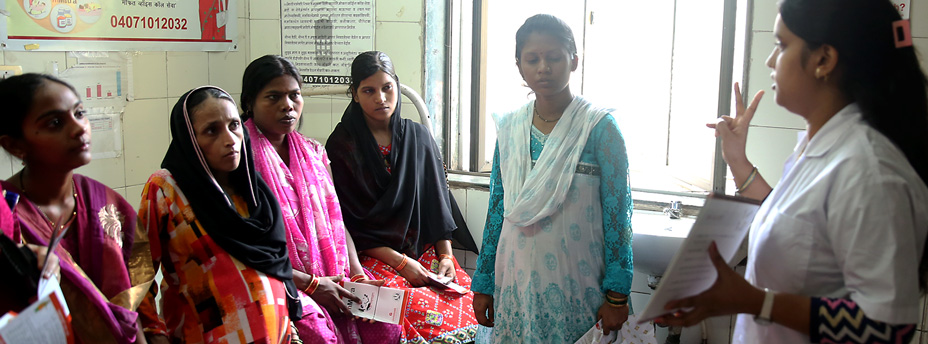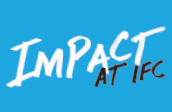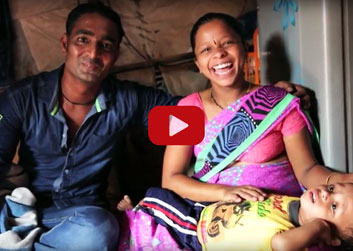
Health workers explain to new beneficiaries how to subscribe to mMitra, at the Sion Hospital in Mumbai. © Glenmark Pharmaceuticals
 When Susheela and her new husband moved into a rented shed in a Mumbai slum, they were on their own because neither side of the family supported their marriage. When they discovered Susheela was pregnant, they had no trusted relatives to turn to with their questions and concerns.
When Susheela and her new husband moved into a rented shed in a Mumbai slum, they were on their own because neither side of the family supported their marriage. When they discovered Susheela was pregnant, they had no trusted relatives to turn to with their questions and concerns.
The local hospital recommended that Susheela subscribe to mMitra—a free service that places automated calls with customized medical information about pregnancy issues, interventions, and advice. Each message is coordinated to coincide with the woman’s stage of pregnancy or her post-childbirth needs. mMitra’s messages and guidance educated Susheela on the medical care she needed to deliver a healthy baby, easing her anxiety and giving her the knowledge and support she and her husband craved.
mMitra combines a common-sense approach to pregnant women’s needs with opportunities offered by mobile technology. Its success demonstrates how a non-governmental organization (NGO,) a local government hospital, and a corporation can reach out to the most underserved pregnant women and mothers with infants.
IFC client Glenmark Pharmaceuticals, in partnership with ARMMAN and Sion Hospital, launched mMitra in Mumbai three years ago. mMitra’s recorded messages, customized to regional culture and language, have already reached 19,000 women. Sion Hospital, a government-run institution that offers its services to low-income Mumbai residents, now offers mMitra as part of its overall services for pre- and post-childbirth patients.
Timed, Targeted Messages Prevent Unnecessary Deaths
Maternal mortality is a serious problem in India. Nearly 45,000 mothers die each year in India due to causes related to childbirth—and this accounts for 17 per cent of such deaths globally, according to the World Health Organization. The most tragic aspect of these deaths, which occur with greater frequency in urban slums, is that about 90 percent of them are avoidable if women receive appropriate information and necessary interventions.
The key to bypassing fatal conditions is providing continual medical care and education to pregnant women throughout the entirety of their pregnancy. That’s why mMitra was conceived.
By coupling mobile technology with partnerships that include local government hospitals, NGOs, maternity homes, and children’s service groups, mMitra’s messages target the most vulnerable pregnant women and mothers with infants. Those messages are as simple as the technology is advanced. A total of 145 individualized voice calls of 90 seconds to 120 seconds are sent directly to the mobile phones of each woman enrolled in the project. Frequency of the calls varies from one per day to one per week. These calls have been determined to be more effective than texts, as women in the target outreach group may be illiterate.
With the increased availability of mobile technology as well as expansion of mMitra’s partnerships, the messages have the potential to reach even more people, promising a lifetime of better health—all in the time it takes to listen to a voice recording.
Access to the Right Information at the Right Time
mMitra is an important contribution to India’s underserved health-care market. Neo-natal deaths account for 56 percent of the deaths of children who are under five years old—higher than the global average of 44 percent. Experts have noted that national progress in reduction of neo-natal mortality has been slow. India’s maternal mortality rate, however, is declining, according to World Bank and World Health Organization statistics.
IFC’s investment of $75 million in Glenmark Pharmaceuticals last year reflects our commitment to private sector support for the delivery of better health outcomes. It addresses issues of quality and affordability across the country, alongside access to health care—a priority for IFC.
To achieve this, IFC’s roles include direct and indirect investment in health-care and life-sciences companies, sharing industry knowledge, raising management and clinical standards, informing government policy, and supporting public-private collaboration in health.
Glenmark was shortlisted for the 2017 FT (Financial Times)/IFC Transformational Business Awards. The program, in its 12th year, showcases innovative, long-lasting, and commercially viable private sector solutions that help countries address key development issues and meet the UN Sustainable Development Goals.
For more information, visit www.ifc.org/health.
Follow the conversation: #IFCimpact
Published in August 2017



